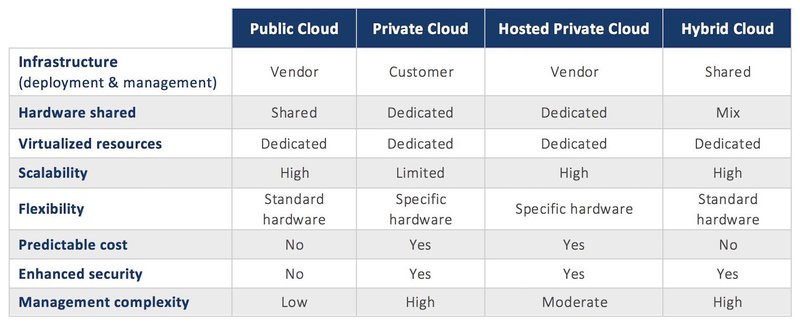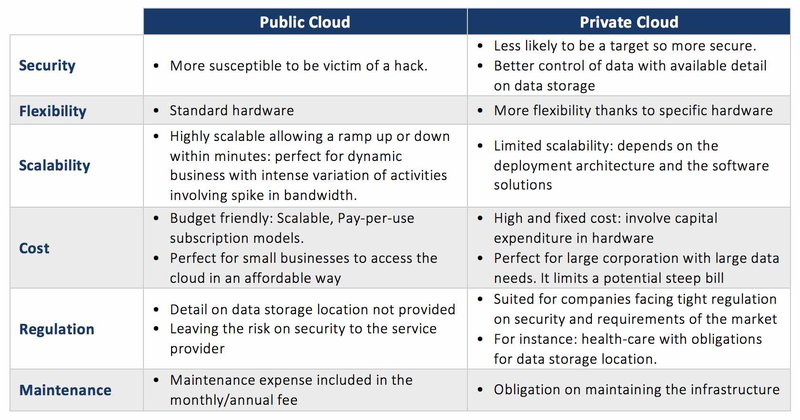Different solutions are offered to enterprise to cover all their specific needs, form public to private model but also the in-between hybrid model that delivers the advantages of both solutions. While Public clouds market have skyrocketed in recent years, private clouds have also attracted a growing dedicated market for itself. There is presently no doubt in the benefit of clouds, but how do companies select the right type of cloud platform that fits their business requirements?
In the public cloud model, personal user, have access to services and products offered by the service provider via the system called as-a-Service. Data and applications are hosted in shared physical hardware owned by the provider who’s in charge of the data center management and maintenance with an obligation to ensure a complete security.
The shared platform model enables many benefits to businesses:
Although data security is ensured by the service provider and even with appropriate measures, there’s always an element of risk. Public clouds platform with the different kind of private data hosted, are more exposed to a possible breach as it is a more compelling target from a hacker’s perspective. The limited private data of only one single organization hosted in the private cloud makes it less likely to be targeted.
The private clouds on the other hands offer a custom-made infrastructure dedicated to your company and only yours. Data and applications can be hosted on premise or in data centers of the service provider, which in both case ensure the management of the platform.
The private cloud environment brings several advantages to the company:
A dedicated hosting provides more overview of the data: customers have knowledge of the exact location of the servers, the list of third person with allowed access and detail of the security system surrounding the facilities…

You may have already guessed through the above content, the best solution depends on each circumstance. It is often linked to the business requirements such as security but also on the budget. Enterprises must consider the pros and cons regarding the requirements and specificities of their businesses in order to make the right choice. What we can however do is trying to assist during the selection process by guiding businesses on their specific priorities and what suit them best. As an alternative, Hybrid cloud often emerged as an ideal solution offering the best of breed.
